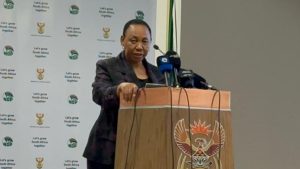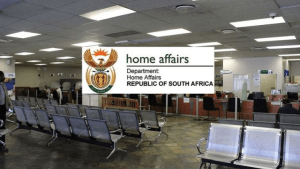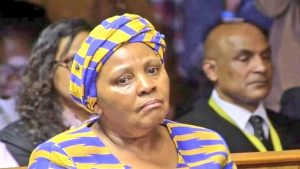Reading Time: 5 minutes
The Democratic Alliance (DA) is set to hold its elective congress this weekend, with about 2 000 delegates expected to be in attendance. The congress will see the election of new leadership as well as resolutions that will guide the party for the next five years.
In the September virtual conference, the DA focused on the party’s values and principles as well as economic justice.
Below is a list of policies from the virtual conference that are expected to be adopted at the congress:
- An economically just society
- A society in which economic opportunities are available to all, and people have the capabilities to make use of those opportunities.
- Address inequalities of opportunity to complement hard-won political freedoms in order to create an economically inclusive and non-racial South Africa.
- Address a failed crony state, unemployment, poverty, low levels of education outcomes and wealth inequality.
- Beat the breakdown of the family
- Introduce shared parental leave.
- Enforce maintenance payments.
- Reduce teenage and unwanted pregnancies,
- Boost housing so that families can live together.
- End poverty
- End poverty in all its forms.
- End hunger.
- Improve levels of financial literacy
- Inequalities in health
- Ensure healthy lives and promote well-being for all at all ages.
- Ensure universal access to healthcare.
- Provide a universal healthcare subsidy for citizens and legal residents to finance public or private healthcare.
- Eradicate childhood stunting
- Introduce food grant to ensure child grant stretches to the food poverty line.
- Provide information to recipients about appropriate nutrition.
- Spatial inequalities caused by apartheid spatial design, and perpetuated by failed land reform.
- Redistribute state owned land, in particular in well located urban areas, in order to provide housing for the poor and employed who would not be able to afford inner city housing.
- Allocate more resources to land reform than it currently enjoys in the budget, particularly relative to non-essential line items such as VIP security.
- Recognise, record and administer a continuum of rights to land.
- Prevent arbitrary dispossession of land and ensure that the benefits which arise from communal land goes to those who live on it.
- Complete restitution claims filed in the original period.
- History of legislated discrimination
- Zero tolerance for discrimination.
- Recruit in order to consciously broaden the pool of applicants.
- Provide equal opportunities within the workplace for training, development and mentorship.
- Enhance social cohesion by ensuring every South African is able to speak English along with one other indigenous language.
- Decent work and economic growth
- Promote sustained, inclusive and sustainable economic growth, full and productive employment and decent work for all.
- Increase employment through investment reforms which drive job creation.
- Introduce voluntary exemptions from sector determined wages for workers who have been unemployed for longer than 12 months in order to open up market for low-skill low wage work.
- Gender Equality
- Achieve gender equality and empower all women and girls.
- Quality education
- Ensure inclusive and equitable quality education and promote lifelong learning opportunities for everyone.
- Increase the duration of time spent on learning by limiting teacher strikes during school hours, ensuring girls do not miss school days due to menstruation and eliminating school dropouts by adopting a ‘whole school approach’.
- Improve teaching quality by promoting careers in education for top learners, introducing competency testing for teachers, attracting skilled foreigners into the teaching profession, increasing use of technology to support teaching and linking teacher remuneration with performance.
- Clean water and sanitation
- Ensure the availability and sustainable management of water and sanitation for all.
- Beat inequality
- Reduce inequality within and among countries.
- Industry, innovation, and infrastructure
- Build resilient infrastructure, promote inclusive and sustainable industrialisation.
- Foster innovation.
- Affordable and clean energy
- Ensure access to affordable, reliable, sustainable and modern energy for all.
- Sustainable cities and communities
- Make cities and human settlements inclusive, safe, resilient and sustainable.
- Responsible consumption and production
- Ensure sustainable consumption and production patterns.
- Climate action
- Take urgent action to combat climate change and its impact
- Life below water
- Conserve and sustainably use the oceans, seas and marine resources for sustainable development.
- Life on land
- Protect, restore and promote sustainable use of terrestrial ecosystems, sustainably manage forests.
- Combat desertification, and halt and reverse land degradation and halt biodiversity loss.
- Peace, justice, and strong institutions
- Promote peaceful and inclusive societies for sustainable development.
- Provide access to justice for all and build effective, accountable and inclusive institutions at all levels.
- Partnerships for the goals
- Strengthen the means of implementation and revitalise the global partnership for sustainable development.
- Build a lean and capable state based on liberal democratic principles
- Reduce the number of ministers.
- Instil culture of excellence in the civil service by hiring based on competence and not connections.
- Establish an independent corruption fighting body with investigative and prosecutorial arms; reporting to SAPS and the NPA respectively.
- Require the appointment and removal of the NDPP to happen through a Parliamentary resolution.
- Implement lifestyle audits for all politicians and government officials above a certain level, or suspected of fraud and/or corruption; as well as doing annual lifestyle audits for government officials selected randomly, by a similar process as that through which SARS identifies taxpayers for auditing.
Below is the proposals from the DA policy conference:






